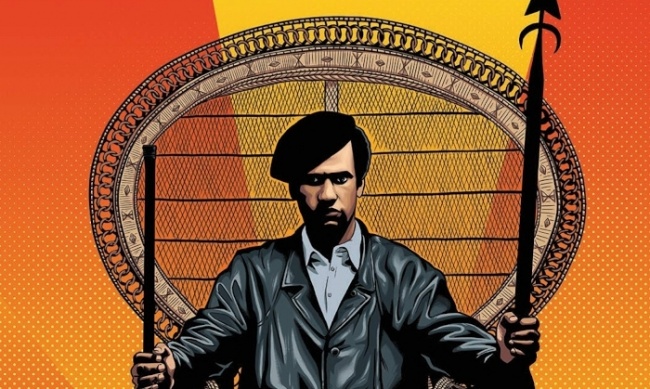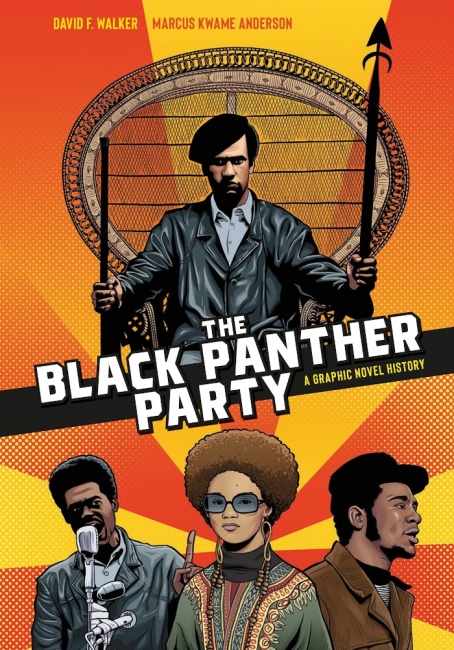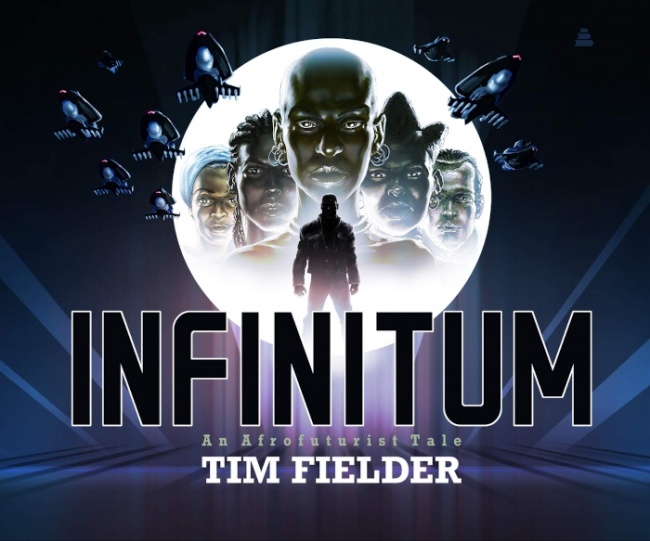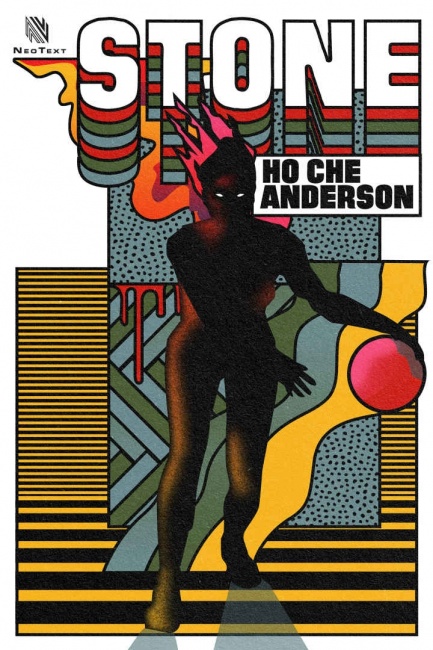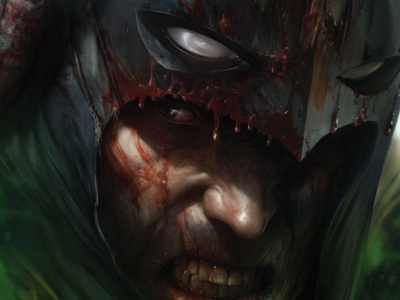No, the other Black Panther(s). Today is the release date for The Black Panther Party: A Graphic Novel History by David Walker and artist Marcus Kwame Anderson, from the Ten Speed Press imprint of Penguin Random House. Walker is well known for his work on Image’s award-winning Bitter Root as well as Power Man and Iron Fist, Nighthawk, Cyborg, Shaft and other popular series. Anderson is co-creator of Snow Daze and draws a couple of titles for Action Lab.
Though the issues that motivated the Black Panthers are still with us today, myths surround the organization, particularly after its collapse in the 1970s amid infighting, chaos and the personal disintegration of some of the leaders. Walker does a careful and thorough job of separating fact from legend, providing thumbnail sketches of the important figures in the movement and objective analysis of the success and failures of their tactical approaches.
Like many mainstream non-fiction graphic novels, The Black Panther Party doesn’t take full advantage of the power of comics storytelling. Anderson is a competent draftsman but the artwork mostly consists of recreations of iconic images and newspaper photos that accompany the text more as illustrations in a picture book than sequential art. Considering the power and urgency of the subject matter, it’s not necessary for a book like this to be a landmark of the comics medium to be effective, but the disparity between Walker’s passionate and informative historical narrative and the rote, static visual treatment is disappointing.
Luckily, the YA market, for which this title seems to be intended, doesn’t care about stuff like that, as long as the book itself is well written, well produced and accessible, which The Black Panther Party surely is. Walker is one of the most thoughtful, creative and uncompromising popularizers of African-American history and culture working today in any medium, and it’s a big deal to see the Black Panthers, who have been vilified and marginalized by American culture for half a century, get such a respectful showcase from an important publisher.
Afrofuturism Ad Infinitum. Afrofuturism – science fiction and fantasy based on Black cultural experiences – is having a big-time moment in media and literature, probably owing some of its visibility to the billion-dollar global success of Marvel’s Black Panther movie in 2018.
Artist, writer and animator Tim Fielder developed the idea for his own contribution to the medium, Infinitum, as a story pitch for the New York Times back in 2016. They passed but he carried through with the idea. The work was acquired by HarperCollins and is also due out today. According to Fielder, this is the first specifically Afrofuturist work to be published by a Big 5 (now Big 4) publisher, which is an important milestone.
The book itself isn’t exactly a comic; it’s a fully illustrated work of narrative fiction, told in single images and captions. It follows an African king, Aja Oba, who is cursed with the “gift” of immortality, destined to outlive and bury innumerable generations of loved ones as his existence spans the centuries. Aja wanders the world living through African and African-American history firsthand, from slavery to civil rights to the current day, then onward into the far future.
The story is engrossing and imaginative, but Fielder’s fully painted artwork really shines. It’s reminiscent of an Afro-futurist Alex Ross in its expressiveness and realism. Each panel is like a detailed concept piece for an epic movie blockbuster, becoming more intense as the story becomes more cosmic-minded in its final third. Infinitum is simply a really good work of sci-fi and it’s unsurprising it got a slot with a major imprint. Both trade and comic retailers will probably be able find readers for this on the basis of the art, production and sold storytelling.
Hardboiled action as cold as Stone. Writer/Artist Ho Che Anderson is perhaps best-known for his definitive graphic biography of Martin Luther King, Jr, King, so I’m going to note his recent work here despite it being published back in September. Stone, a near-future action revenge thriller in the style of early 70s grindhouse classics like Death Wish and Billy Jack, is a prose novella with spot illustrations from Anderson.
Frankly, it’s hard to go wrong with a good hunt-down-the-deserving-bad-guys story – particularly one that also riffs smartly on contemporary political and social issues – and Anderson delivers. “The notion of revenge is exciting on a visceral level,” said Anderson. “Who among us hasn’t had the fantasy of exacting payback against those who have wronged us? And who among us doesn’t enjoy seeing that fantasy played out by onscreen proxies? But the reality of that cycle of violence in the real world is ugly and messy. I wanted to look at revenge at a deeper level to see how it actually affects those who perpetrate it and those who are affected by it.”
Set in a near-future world, Stone tells the story of Graciella “Stone” O’Leary, a young woman who wants a chance to use both her basketball skills and her intelligence to build a better life for herself and her father. But after a night as a prisoner in the mansion of the richest and most powerful family in town, Stone realizes that in the world she lives in—the world that exists after the Cancelled Election—her future is not hers to decide. A sequel, Rizzo, illustrated by Benjamin Marra, came out at the end of 2020.
These titles will be a little bit harder for retailers to keep on the shelf, as NeoText is a digital-only imprint. The company aims to bring the venerable pulp fiction publishing model into the digital world, creating a direct-to-readers platform for quality fiction and longform journalism. Especially since novella-length work has trouble finding a market on bookshelves, this seems like a good solution for writers and artists like Anderson to distribute new works that don’t fit into typical publishing formats.
"With NeoText, I’ve found a kindred spirit and a fearless companion in a unique experiment in genre storytelling," said Ho Che Anderson. "I couldn’t be more thrilled to be a part of this—dare I use the words socialist collective?—designed to give creators a fair platform to create exciting, confrontational work."
The opinions expressed in this column are solely those of the writer, and do not necessarily reflect the views of the editorial staff of ICv2.com.
Rob Salkowitz (@robsalk) is the author of Comic-Con and the Business of Pop Culture.



